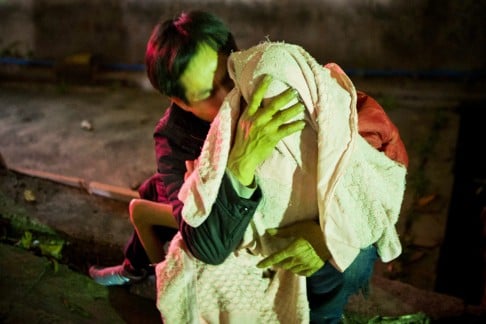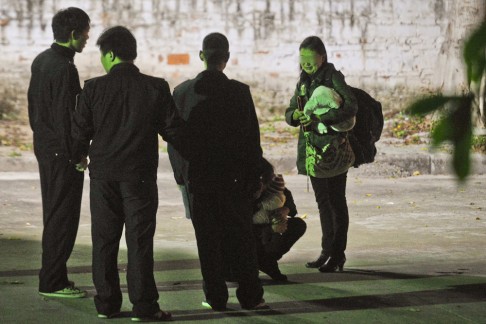Abandoned: Heartbreaking pictures of parents leaving their children in China’s notorious 'baby hatches'
They are truly heartbreaking scenes. The moments of despair as parents cling to their children for one last time before abandoning them in China’s so-called baby hatches.

They are truly heartbreaking scenes. The moments of despair as parents cling to their children for one last time before abandoning them in China's so-called baby hatches.
A father kisses his child, her face hidden in a blanket. A mother holds her hooded baby as their shadows are cast upon the last door they will pass through together. Another collapses to the ground, reaching out to touch her son for the last time.
They are the final moments of lives torn apart, often by poverty or an inability to cope with disease or disability.
“My baby cannot take care of itself when it grows up,” one woman cries, explaining that her infant has Down’s syndrome. ‘I just want my baby to survive,” she tells the Information Times newspaper based in Guangzhou. She and an accompanying female friend leave, both in tears.
